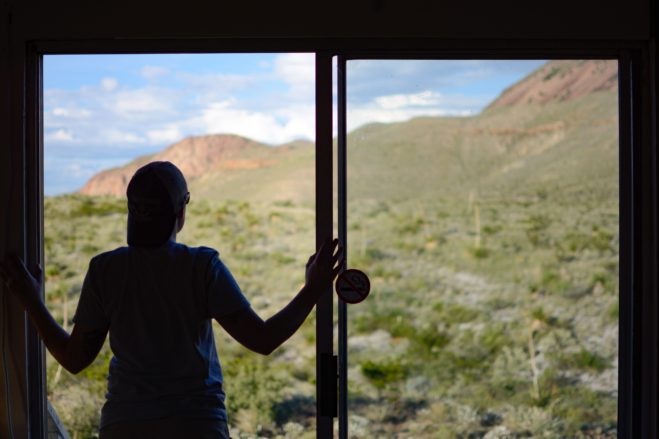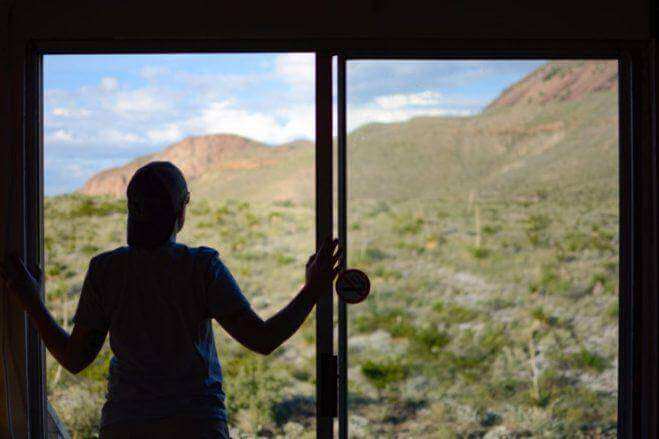
Don’t underestimate the digital nomad lessons you can learn at home.
That’s the advice that Eli gave in a pod back in summer 2018… And it’s particularly relevant today. With the coronavirus temporarily sidelining our wanderlust, it feels like an apt time to take a stroll down memory lane.
So let’s revisit some pre-covid takeaways about Home and the role it can play on your nomadic journey:
Wanna hear more? Subscribe on Stitcher, iTunes, Spotify, or wherever!
I find that different locations can bring about powerful understandings that have a substantial impact on my future (and future happiness).
Sometimes, with the distance of time, you can look back and understand things much better.
Conversely: If I ever reach an optimized “perfect life” situation, that’s gonna be the point when I quit and turn to a new chaos. This lifestyle is only as good as long as I keep learning from it.
Now a quick warning: These lessons and understandings are fairly personal. Just because they worked for me doesn’t mean they’ll fit your inner psychology (in fact, they could make you miserable).
So – take the time to figure out your understandings. Spot those formative moments, document them, and play around with them. Be constantly open to change and keep questioning the status quo.
So let’s get to the big digital nomad lessons learned at home (which, for me, is Israel). The more I come back, the more these understandings develop and teach me.
I actually first started my nomadic lifestyle experiment in Israel and it helped with the learning curve. When you start, there are a bunch of unknowns that can hit you. Over the past 10 years, I’ve gotten a good grasp of the subtle factors that come into play and impact my nomadic life. But the lessons from the first few destinations are still among the most powerful.
1st takeaway: Build a foundation before plunging into travel
We’ve tackled this nomadic philosophy before: Don’t just jump into long-term travel, especially if you’re planning to work and/or set up a business. Even though the nomadic lifestyle feels random, it does require you to set up a proper infrastructure in case of various scenarios.
Thie includes setting up an international bank account, taking care of bureaucracy with tax authorities, and tackling any number of tasks that may pop up. Don’t underestimate these details: You don’t want to be in a situation where you rushed off somewhere far away and then find that you didn’t set up the right credit card.
2nd takeaway: Don’t be a nomad in your own home
The idea here is drawing a line between lifestyles. When I was originally back home setting up my infrastructure and testing out the lifestyle on a small scale, it was helpful in working out the kinks… But I quickly realized that beyond that benefit, it wasn’t a great idea.
Because it gets very confusing. The beginning of the nomadic journey involves letting go of your ego and making a radical definition change. And one of the beauties of being on the road is that you know no one. You get to click reset button and take your first first steps without the people close to you judging you. It’s the ultimate clean slate.
Which brings me to this pro tip: Nobody is judging you if you’re a tourist or a traveler. You’re supposed to be clueless.
But if you’re trying to declare your nomadism at home, it might create unnecessary frictions or worries for your circle(s). And there could also be some internal friction: You’ll face the dissonance of “resetting” in a place you actually know very well and are comfortable in.
Living outside your natural environment, at least in the beginning, let’s you experiment with your lifestyle and achieve a natural equilibrium without the pressure of expectations from society or your ego.
So – It’s better to get lost in a place you’re expected to be lost in.
3rd takeaway: Have a sedentary ally
This one of our digital nomad lessons is particularly for those starting a business: Having a partner who doesn’t move around and provides a safety net for dealing with authorities/clients/any sort of surprises.
By the way – this isn’t such a factor for me anymore. Now, I know exactly where I’m going to be and where my coworking spaces are, so I don’t need that safety net. But in the beginning, it’s absolutely crucial to have while still figuring things out.
Even if not a business partner, it’s great having having a family member or friend who can pick up your mail and generally be a go-to person back wherever you call home… Just in case.
4th takeaway: Don’t go ultra nomadic
Going back to the beginning – ultra-nomadism might be perfect for you. But it absolutely wasn’t for me.
When I started, I didn’t really know what a nomadic lifestyle was supposed to look like (still honestly have no clue). My initial idea was very simple and revolutionary (in retrospect – very stupid).
The idea was this: Never spend a night in the same place. I tried doing that for a month all while establishing a business & its infrastructure… And I nearly lost my sanity.
The ultra fast paced nomadic lifestyle is a disaster for me. And I think you have to be very special to succeed long-term as an ultra-nomad. I haven’t met any people quite like that yet.
The problem is that the ultra-nomadic lifestyle of constant change led to loneliness and instability. That said, I won’t say “never” to doing it again – it was a very powerful experiment with two big digital nomad lessons for me:
- The importance of slow travel
- The value of a work environment (i.e. coworking spaces)
5th takeaway: It’s nice to have a designated home base
The idea here: A nomadic lifestyle is inherently very unstable. And one way to balance that with a stabilizer is by setting a home base.
Many of the grounded nomads that I’ve met agree that having a home base is a very positive force for them.
Now, let’s ask what considerations to take when picking a home base. Well, it greatly depends on your belief system and psychology; for me, it had to be where my family is. And it also had to do with certain notions about personal safety and security (which have become particularly apparent in our coronavirus times).
For others, the place they pick is the place they love the most… Or the place where their business resides.
The bottom line here is simple: Living a nomadic lifestyle without any home base can be detrimental to your psychology. Knowing that life breaks from time to time with a visit home, however, allows you to take a break from the definitions of being a digital nomad. Which is a valuable opportunity! Something all you need to get your head straight is taking a minute and looking at life from the outside.
And by the way – when I’m home, I am completely back to normal. None of these nomadic lifestyle adventures. I work, I spend time with family, I fully immerse myself in that lifestyle, and I leave fully recharged.
6th takeaway: Build a home routine with enjoyable activities
If you have a place you call home, make it fun. After all, you’re going to constantly returning.
Unlike a travel destination, where routines are going to be important only in the short-term, your experience back at your home base will be lived and re-lived every time you come back. So you want a personal framework of enjoyment in place.
That’s why I’ve made a special priority to enjoy my time at home with a few powerful routines and understandings. The main one took some time to understand: Spending time with my family and not being a nomad while home.
Reason being: If you’re gonna take the nomadic lifestyle, you’re not going to see your friends or family that often… So I make it a priority to spend lots of high-quality time with them when I’m back.
Other than that, I’ve set up a few other interesting routines and habits. For instance, I always make sure to take a camping trip to Eilat on the Red Sea. It’s kinda a ritual I have every time I go back to Israel. Another one is visiting the sea on a daily basis – it’s incredibly therapeutic and adds a nice calm daily tradition for my time back home.
7th takeaway: The value of a week of disconnection
Let’s ask ourselves a few questions:
What is the nomadic lifestyle about if not freedom? And if we agree here…
How free are you if you keep on moving but can’t disconnect from your work?
This was the situation I found myself for about six years… Until I started this tradition of taking a week of disconnection, which I’ve been doing every few months for the past four years.
The idea here is that basically allocating one week in each quarter of the year to take completely off from work and devices. Focus all attention elsewhere. Retire for a little bit right now because you may not get the chance later on.
I’ve had a lot of ideas I wouldn’t necessarily encourage, but this one… It’s led to some of my favorite travel highlights.
Bonus to our digital nomad lessons: Daily exercise is key
This became apparent during my first week of disconnection. What happened was: I was camping by the Red Sea and came upon a man outside his tent doing Tai Chi with a sword in a bizarre outfit.
At first, I looked at him suspiciously and did what I always do: I figured “What a nutcase.” But then, later on, I thought to myself, “What if he’s onto something?”
Now, I decided to drop the sword part. And the Tai Chi part. But I did agree internally to adopt his commitment to physical exercise- at least for 30 minutes a day.
So that concludes our digital nomad lessons: Keeping fit is critical. It greatly influences your mental health. And you need to keep it as simple as possible while traveling – it’s usually hard to find a gym or a bicycle or even good weather. If you can keep it simple with a daily routine that you can do in a park or in your home without depending on any instruments… You’re winning. It’s an extremely powerful routine.
What do you think of our home–inspired takeaways? What is your definition of home? And what are some home routines you rely on?
Let us know in the comments below!



0 Comments